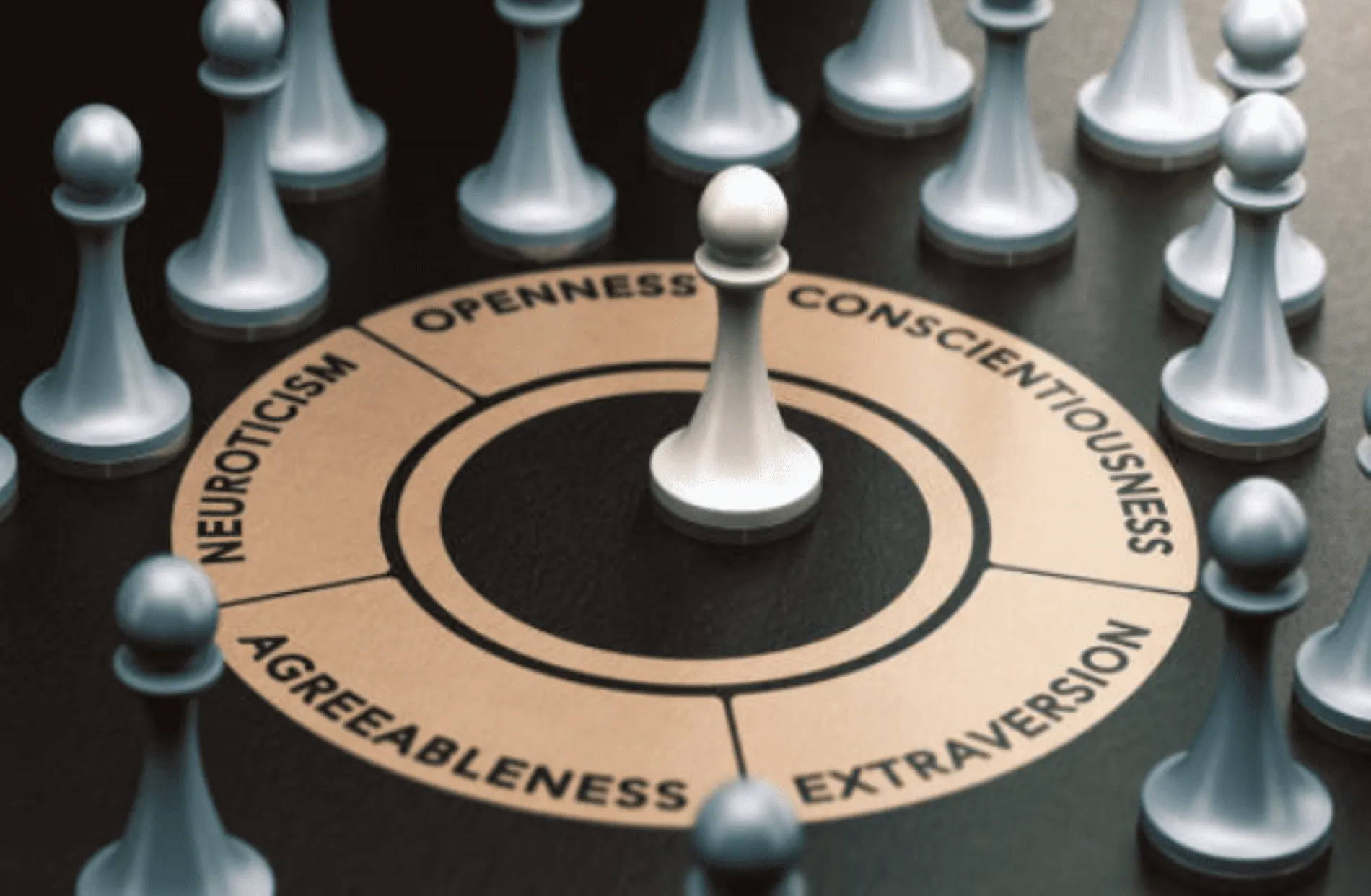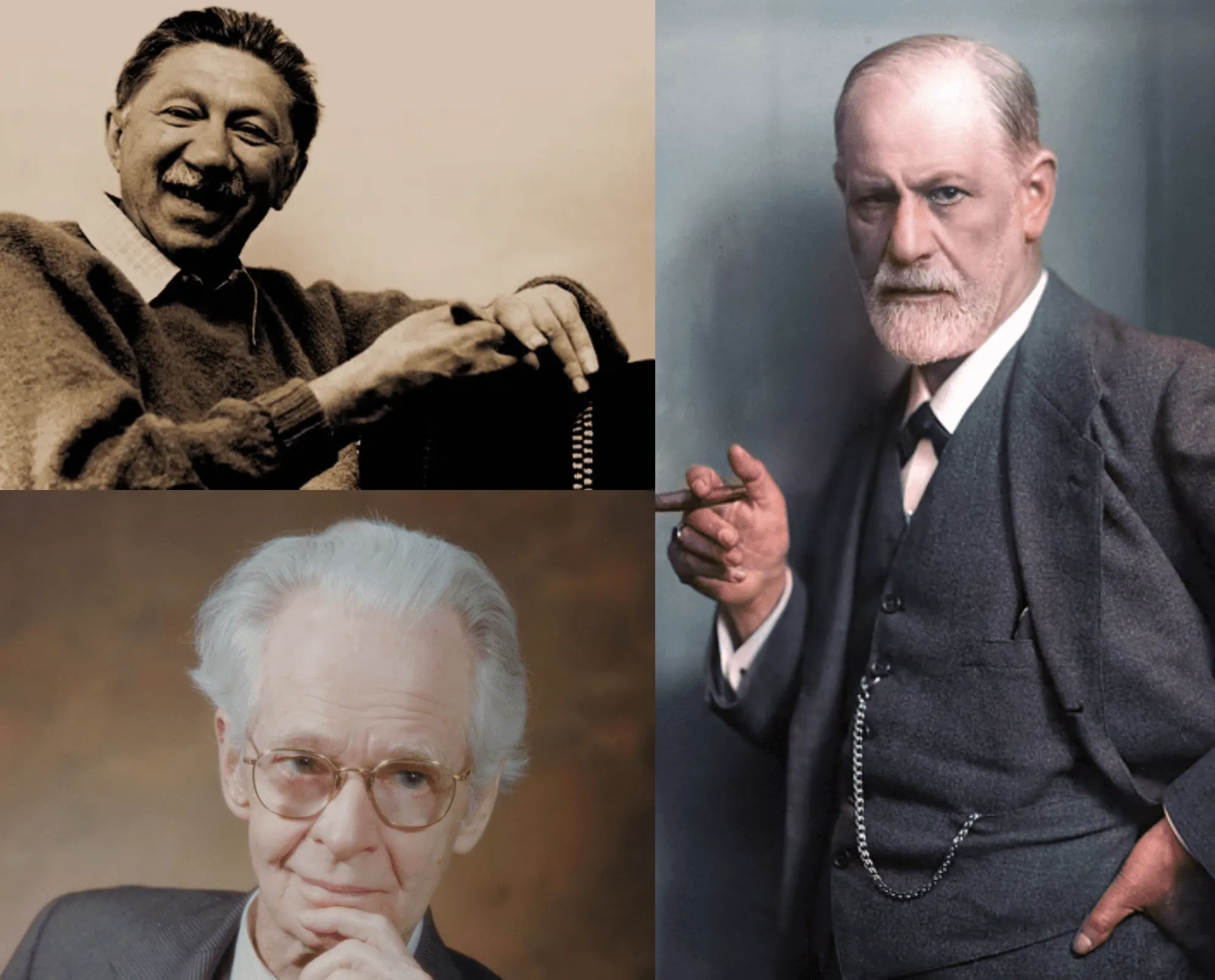The Science Behind Behavioral Assessments
Author: Tyesia Hunter
Decoding Human Behavior: The Science Behind Behavioral Assessments
The Significance of Understanding Human Behavior
Looking into the labyrinthine universe of the human psyche, it's almost impossible to overstate just how critical understanding human behavior is, particularly in today's complex society. It's like holding a mirror up to the intricate attributes that make us who we are individually and collectively.
From our interactions with family, friends, and colleagues to broader societal constructs - understanding why people think, feel, and act as they do can potentially unlock a universe of possibilities for growth and improvement. This is where cognitive behavioral assessment comes into play.
The process endeavors not only to decode an individual’s behavior but also to understand the reason behind it. It serves as a cornerstone for psychologists seeking to fathom what drives individuals on cognitive, emotional, and behavioral levels.
Through such assessment techniques, we can dig deeper into the intricacies of personality traits - broadening our knowledge about ourselves and ultimately helping us develop better strategies for personal growth or even conflict resolution. The aforementioned only scratches the surface of what this subject has morphed into over time; it has permeated beyond clinical psychology circles and into various other fields as well.
Take job candidate assessment for instance - employers often use behavioral interview questions or psychometric testing during interviews to better understand their potential employees’ personalities or cognitive abilities. They assess how candidates would behave in different work situations based on their responses thereby aiding in making informed hiring decisions.
Similarly, leadership assessments have become an integral component within organizational dynamics as companies realize that effective leadership isn't just about having technical know-how but also hinges significantly on emotional intelligence - understanding oneself and others around them. Such assessments provide insight into leaders' strengths and weaknesses from a psychological standpoint which could eventually redound upon both individual development plans as well as strategic organizational planning.
In parallel with these applications within professional settings are those in education; behavioral assessments have found substantial utility here too. Such evaluations have emerged as potent tools facilitating a better grasp of students' learning styles thereby customizing teaching methods accordingly.
This goes a long way in fostering an environment conducive to comprehensive learning - one that addresses individual needs while catalyzing overall growth. So, whether it’s through behavioral profiling or a more formal behavioral assessment questionnaire, these practices help us better understand each other and ourselves.
These tools assist in the creation of tailored strategies that cater to individual needs thereby facilitating personal and professional development at various levels.
Whether you're an employee trying to improve your performance, a psychologist looking to understand the human psyche, or a teacher seeking to optimize student engagement - there is no denying the far-reaching implications of decoding human behavior.
The Basics of Behavioral Assessments
To delve into the intricacies of human behavior, one must first grapple with the fundamental concept of behavioral assessments. At its core, behavioral assessment is an approach used to understand and evaluate observable actions or reactions of an individual in a given context. This is achieved by using various methods such as direct observation, interviews, self-reports, or psychometric testing.
Engaging in this practice offers several key benefits. Through behavioral assessments, organizations can decode their employees' behaviors to refine their understanding of job performance and leadership potential.
For instance, employee performance assessment may shed light on how an individual's behavior impacts their productivity and contribution towards team success. Similarly, leadership assessment could provide valuable insights about one's suitability for managerial roles based on behavioral patterns.
Another pivotal aspect of these evaluations is the use of behavioral interview questions during job candidate assessment processes. These questions are designed to probe past behaviors as a predictor of future performance – highlighting strengths that may not be evident from resumes alone.
Let's look at behavior analysis in education settings.
By systematically observing students' behaviors within learning environments (classroom-based or otherwise), educators can develop effective strategies catered towards improving academic engagement and performance - a process often referred to as behavioral assessment in education.
But important is organizational behavior assessment — examining group dynamics within workplaces to improve efficiency and overall satisfaction levels among employees; personality assessments aimed at identifying individuals’ traits; psychometric testing that measures aspects like aptitude and attitude; and a variety of behavioral assessment tools and questionnaires utilized to gather comprehensive data about individuals’ behaviors.
These forms of assessments help in creating a robust framework for understanding people’s actions, thoughts, motivations, and responses in different contexts. By decoding human behavior through these various lenses, we can gain profound insights into ourselves and others that lay the foundation for more effective communication, healthier relationships, improved performance at work or school, and overall increased psychological well-being.
The Science Behind Behavioral Assessments
Peering into the intricacies of human behavior, scientists have developed a myriad of tools and methods for assessing behavioral characteristics. is based on years of empirical study, developing hypotheses, and verifying them through various test methods.
It's quite a fascinating journey to understand how this field has evolved over time. The art and science of understanding the human mind have led us to create tools like the behavioral assessment questionnaire.
This instrument is designed to carefully measure an individual's behaviors and attitudes under various circumstances. It provides valuable input helping professionals make informed judgments in fields as diverse as psychology and organizational development.
Now let's dwell upon what exactly happens when we conduct these assessments. Each method involved in any given assessment—be it employee behavior assessment or leadership assessment—is steeped in scientific theory and practice.
For instance, you're no doubt familiar with behavioral interview questions that aim to discern how you'd react in specific professional situations based on your past behavior. Also consider personality assessments that probe deeper into our psyche, unearthing personal values, attitudes, and traits that define us as individuals.
These are not just random questions thrown together; they're based on comprehensive research conducted by experts in psychology and psychometrics over decades. Moreover, there are specialized areas where these principles find application too; one such area is education.
Behavioral assessment in education plays a crucial role in understanding students' learning styles and identifying any potential issues they may be facing personally or academically. Onto another fundamental premise of this science—behavior analysis—it is an approach that focuses on the principles of learning derived from decades worth of scientific research which can be helpful across various contexts of our lives from classrooms or businesses to hospitals.
Interestingly enough even companies see value here—employee performance assessments are often designed around principles rooted deeply within behavioral science theories to help increase productivity levels while ensuring workers stay satisfied with their roles at work. At its most complex form though - think 'Behavioral Profiling', designed typically for law enforcement use-cases, it's the practice of predicting or identifying characteristics of individuals based on analysis of their behavior during specific situations.
So, whether we're speaking about a cognitive behavioral assessment used in a clinical setting, an organizational behavior assessment used in workplaces, or psychometric testing and job candidate assessments in recruitment processes—the science behind these assessments is robust and continuously evolving. Every tool—from behavioral assessment tools to specific methods like behavioral profiling—contributes to creating a comprehensive understanding of human behavior underpinned by rigorous scientific practices.
Foundational Theories (e.g., Freud, Skinner, Maslow)
Our exploration of human behavior would be incomplete without acknowledging the pioneering work of some influential figures. Foremost among them is Sigmund Freud, one of the most recognized names in psychology.
Freud's psychoanalytic theory suggested that our behaviors are heavily influenced by unconscious thoughts, memories, and desires. It set a foundation for much subsequent research in psychology.
Although some of his theories have been critiqued and modified with time, his emphasis on the relevance of unconscious factors on behavior remains significant. Freud's ideas were revolutionary for their time but they're also multi-faceted, aiding in the development of behavioral assessment tools and personality assessments utilized in various fields today.
His influence is seen distinctly within psychometric testing where aspects of personality play a crucial role. His theories also provided a wealth of behavioral interview questions used commonly in job candidate assessments and leadership assessments.
Moving to B.F. Skinner gave us an entirely different perspective through his theory on operant conditioning - that behavior is determined by its consequences; rewards encourage repeat behavior while punishments discourage it. Skinner's experiments primarily involved animals but had deep implications for human behavior too - helping us understand how learning happens through interaction with our environment.
This principle has widespread application from classrooms to corporate settings – from behavioral assessment in education (think rewards for good grades) to employee performance assessments (promotions based on achievements).
Skinner’s theories have made invaluable contributions to shaping organizational behavior assessment allowing companies to motivate their employees effectively.
We can't forget Abraham Maslow whose hierarchy of needs framework posits that humans have a range of needs — physiological at the base level ranging up to self-actualization at the top — essentially stating that our behaviors are motivated by these unfulfilled needs. Maslow’s model is applied widely within various domains like education or business, guiding approaches towards motivation and fulfillment both personally and professionally – for instance, influencing leadership assessment models focused on employee growth or even molding the direction of behavioral profiling.
His work also underscores many behavioral assessment questionnaires that aim at understanding an individual’s motivation and needs. In sum, these theories form the bedrock upon which modern understanding of human behavior and various types of assessments rest – from cognitive behavioral assessments to employee behavior assessments, their impact is profound and pervasive.
The Process of Conducting Behavioral Assessments
The road to understanding human behavior is not as straightforward as following a recipe; rather, it is akin to navigating a labyrinth, full of twists and turns that demand an intuitive sense of direction. However, with the correct tools and methodology at your disposal, the task becomes less daunting. To start off with conducting a behavioral assessment, one must first acknowledge that it is not just about analyzing an individual's actions but also recognizing the underlying factors influencing those actions.
In essence, behavioral assessments are snapshots of a person's responses under different circumstances and can be accomplished using various tactics such as observational studies, self-reports, or psychometric testing. These techniques offer valuable insights into organizational behavior assessment by objectively evaluating how employees interact within their work environment.
Similarly, they play an eminent role in the realm of education by facilitating behavioral assessment in education which evaluates how students react and adapt to classroom dynamics. While traditional observational studies involve meticulously recording patterns of behavior in real-time scenarios, self-reports rely on individuals' accuracy and honesty about their own behaviors.
This method could include tools such as a behavioral assessment questionnaire where individuals rate themselves on particular behavioral aspects. Then there's psychometric testing - a scientific approach used for measuring individuals' mental capabilities and behavioral style.
It incorporates personality assessments that delve deeper into understanding an individual’s character traits and temperament; this aids significantly in areas like employee performance assessment where employers need detailed profiles of their workforce to make informed decisions. Assessments aren’t confined only within the bounds of organizations; they have vast applications in psychological practices too.
The field employs multiple strategies for behavioral profiling like cognitive behavioral assessments which help map an individual’s thought patterns that guide their behaviors. In job recruitment scenarios or leadership assessments, for instance, interviewers use specially crafted behavioral interview questions to comprehend the depth of candidates' problem-solving skills or gauge their stress management capabilities.
Remember though: these interviews aren't your run-of-the-mill question-answer session! They are more like strategic exchanges - think of them as verbal versions of a behavioral assessment tool employed to paint an accurate and comprehensive representation of the interviewee.
To cap it off, the process involves interpreting the collected data. It’s here that the proverbial ‘decoding’ happens.
The patterns unearthed through meticulous observation, reliable self-reports, or rigorous psychometric tests are analyzed using principles of behavior analysis for validity and reliability before being used for decision-making or intervention planning. All said and done, it's essential to note that these assessments are not absolute.
They are simply tools seeking to capture a dynamic human phenomenon within finite parameters - an endeavor that always has room for refinement and evolution. So next time you encounter a behavioral report – be it a leadership assessment at work or your child’s school report – remember to take it with a pinch of salt but with due consideration nonetheless!
Practical Applications of Behavioral Assessments
Diving into the realm of practicality, we find that behavioral assessments are not just confined to the walls of research laboratories or psychologists' offices. They're increasingly becoming key players in the modern workplace.
Take, for example, employee behavior assessment and leadership assessment. These two are vital tools leveraged by organizations to understand their personnel better and foster a healthy work environment. Employee behavior assessments help discern areas of strength and potential growth, contributing significantly toward an effective employee performance assessment. Think about it from a hiring manager's perspective too - their job isn't easy!
They must sort through stacks of resumes, and conduct numerous interviews, all while trying to predict if a candidate will be successful in the role. That's where behavioral interview questions come into play.
Coupled with psychometric testing and job candidate assessments, these tools can provide a well-rounded view of an individual’s competencies and personality traits before they even set foot through the door. In our educational system too, behavioral assessments have made their mark as indispensable tools for understanding students’ capabilities and optimizing their learning experiences.
Behavioral assessment in education helps educators design appropriate interventions to facilitate academic success based on an individual student’s needs. A broader look at organizational environments highlights another application: organizational behavior assessment.
By employing behavioral assessment tools including personality assessments and cognitive-behavioral assessments, companies can gain insights into group dynamics that shape their organization's culture and operational efficiency. But let's not forget about psychology - the birthplace of all this knowledge about human behavior!
From Freud’s psychoanalysis to Skinner’s operant conditioning experiments, various methods were devised for unraveling human nature. Today's modern-day psychologists often utilize techniques like behavioral profiling or cognitive-behavioral assessments within their practices to gain deeper insights into their patients' behaviors or mental health conditions.
So next time you fill out a seemingly innocuous questionnaire at work or school, remember that it could be more than just ticking boxes - it could be a part of a comprehensive behavioral assessment! These tools and methodologies serve as vital cogs in the wheels of various domains, helping us understand ourselves and others better, and making our environments more conducive to growth and productivity.
Critiques and Controversies
Surrounding Behavioral Assessments
It's impossible to ignore the critiques and controversies that have sprung up around this area of study. A major critique is that behavioral assessments, while beneficial in many ways, can also pigeonhole individuals into certain categories.
For instance, a job candidate assessment based on behavioral interview questions may identify an individual as an introvert or extrovert, potentially leading to bias in hiring decisions. Moreover, the reliability of such tests has been hotly debated.
Critics argue that they fail to capture the fluidity and changeability of human behavior. This concern ties closely with another controversy - the potential misuse of these assessments in various scenarios.
Some fear that these tools may be wielded irresponsibly or unethically in situations such as employee performance assessments where they can be used to justify terminations or reductions in benefits. On a similar note, while organizations frequently use psychometric testing and behavioral assessment questionnaires for leadership assessment and employee behavior evaluation, some critics argue that they oversimplify human nature.
They maintain that reducing complex personalities and behaviors to numbers and categories overlooks nuanced differences among individuals. The application of behavioral assessments in education is also a contentious issue.
While some educators believe these evaluations help identify learning needs and inform teaching strategies others voice concerns about labeling students too early or relying too heavily on these tools at the expense of other factors like creativity, resilience, or sociability. Furthermore, concerns have been raised about how easily comprehensible these tests are for laypeople who are often required to interpret their results.
For instance, cognitive-behavioral assessments often use technical jargon that might not be easily understood by non-psychologists. All said though it's important not to lose sight of the countless benefits offered by behavioral assessment tools when used appropriately: providing insights into organizational behavior; aiding personality assessment; facilitating effective job candidate evaluations through behavioural profiling; aiding comprehensive behavior analysis etc.
However like with any tool it's important that these assessments are used responsibly and within context. They should supplement, not replace, other sources of information about a person's capabilities and potential.
Conclusion
As we draw this enlightening journey to a close, it's important to recollect the insights garnered. Understanding human behavior is not only fascinating but also extremely crucial in various spheres of life – be it personal relationships or professional interactions. Behavioral assessments, underpinned by scientific rigor and empirical evidence, provide valuable insights into the way people think, feel, and act.
Behavioral profiling and personality assessment are not conjectural; rather they are based on solid theories postulated by eminent psychologists like Freud, Skinner, and Maslow amongst others. Moreover, these assessments incorporate a plethora of behavioral assessment tools such as questionnaires and psychometric testing to obtain comprehensive data about an individual's behavior.
In the organizational context specifically - from employee performance assessment to leadership assessment - understanding human behavior plays an indelible role in shaping a company’s dynamics. Organizational behavior assessments help identify potential leaders who can steer the organization towards growth while behavioral interview questions aid in selecting job candidates whose outlook aligns with the company's vision.
Behavioral assessments also find pertinent application in education - aiding teachers to understand their students better which results in more effective teaching strategies suited for individual needs. Not limited to just identifying behavioral problems or learning difficulties, these assessment tools also shine a light on hidden potentials and strengths of students that can be further honed.
However, like every scientific field, behavioral analysis has its share of controversies and skepticism often stemming from potential misuse or misinterpretation of data gathered through behavioral assessment questionnaires among other things. It is thus pivotal that these criticisms are addressed with objectivity while continuing exploration in this intriguing field.
As we wrap up our exploration of decoding human behavior tied together with the science behind behavioral assessments; let's remember that our understanding about ourselves and each other will continue evolving as we delve deeper into this labyrinthine yet mesmerizing realm of psychology. The knowledge we gain equips us with cognitive empowerment – thereby enabling better communication and harmonious relationships and ultimately steering us toward a more empathetic society.










